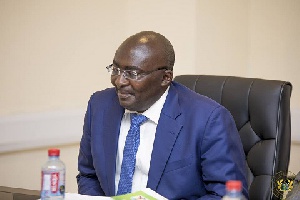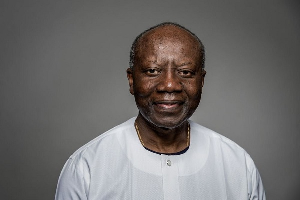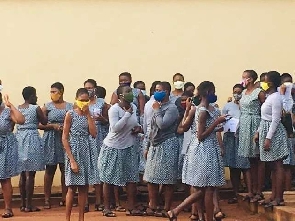Vice-President Mahamudu Bawumia has advocated reforms of major policies within the operations of State-Owned Enterprises.
The reforms, Dr Bawumia explained, would significantly strengthen the governance structures by addressing the challenges confronting the nation’s SOEs.
He said this at the 2017 State-Owned Enterprises Policy and Governance Forum hosted by State Enterprises Commission and the Ministry Of Finance in Accra yesterday at the Movenpick Hotel.
While calling on SOEs to have a transformed structure with the essential skill to get the best deals out of partnerships with the private sector, he added : “there is an urgent need to harmonize the way in which government manages these entities.”
“Currently, multiple institutions including the Ministry of Finance, the State Enterprises Commission and sector Ministries perform various oversight functions in the SOE sector. This fragmentation in the Government’s ownership structure coupled with the absence of a clearly defined ownership framework has limited government’s ability to effectively oversee SOEs,” he explained.
The Vice-President believes the broad reform set up by the World Bank Technical Assistant Programme from which the State Enterprises Commission, as well as selected SOEs, are benefitting would further improve their performance as well as effective and efficient service delivery.
“The reforms also includes the development of key policies for the sectors within which the SOEs operate, including: ownership policy, board nomination policy, financing policy, amendment of Acts establishing relevant SOEs to incorporate corporate governance sections; and the listing of some SOEs on the Ghana Stock Exchange and conversion of others into Limited Liability Companies,” Dr Bawumia emphasized.
He also made a strong case of issues concerning Ghana’s commercial viability and fiscal impact.
“A recent report by the Ministry of Finance covering 18 SOEs indicates that they made a net loss of GH¢791 Million, in addition to having received loans and financial support totaling more than GH¢13 Million. This is no longer sustainable and it is your responsibility to come to the table, in the course of this forum, with solutions to it,” he indicated.
With regards to the fiscal impact, the Vice-President described the impact of the quasi-fiscal activities of SOEs on the macroeconomic environment as worrying, citing the energy-sector debt that had also created systemic risks in the banking sector.
He therefore cautioned managers of SOEs that the challenges “we continue to have over these debts must be at the back of your minds when executing contracts and making commitments with financial, and ultimately fiscal implications for the whole economy.”
He appealed to the various stakeholders in the sector to make proposals to government on the three principal issues he had raised.
They are ensuring commercial viability of entities, insulating the fiscal side of the economy from their activities, and “deploying truly world-standard corporate governance systems at your entities.”
Business News of Sunday, 24 September 2017
Source: thestatesmanonline.com













